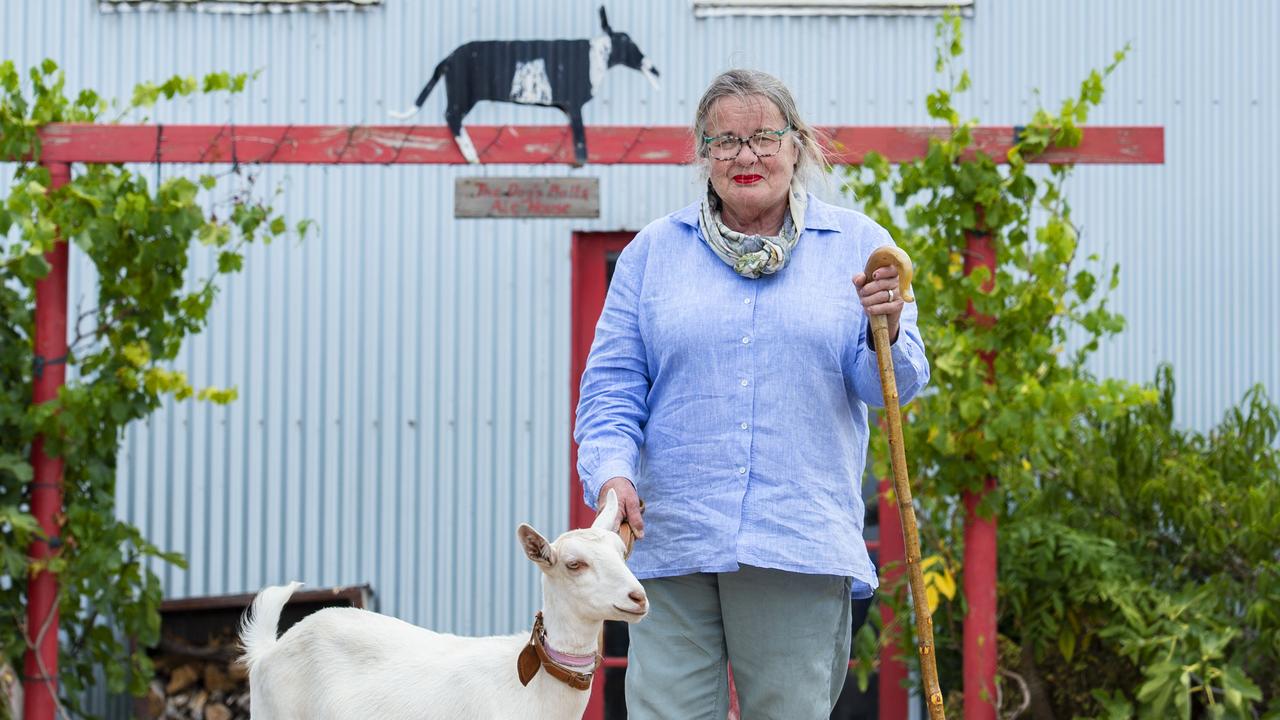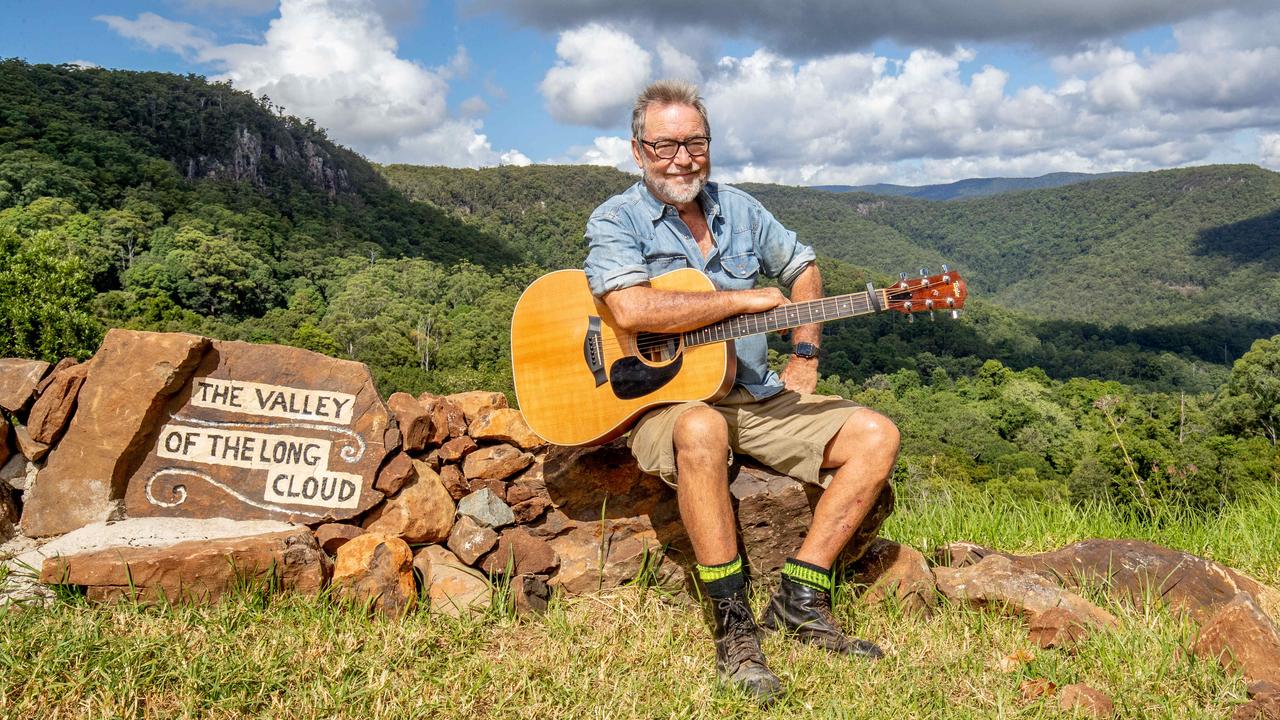Kyneton Lost Trades Fair founder Lisa Rundell reflects on event growth
It is the country Victorian event now held across Australia. Lisa Rundell looks back on the revolution Kyneton’s Lost Trades Fair has started.
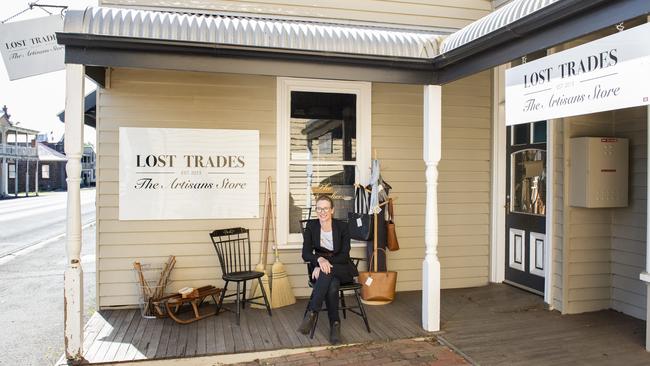
FROM the outside, the weatherboard shop on Piper Street, Kyneton, is cute, even unassuming.
But inside these walls Glen and Lisa Rundell started a revolution.
Six years ago the couple — having established their own handcrafted chair shop Rundell and Rundell — started the Lost Trades Fair in Kyneton, a celebration of skilled manual work, traditional trades, crafts, tools and techniques, passed down through generations
“We held the first fair in the Kyneton Museum (in 2014) and we thought we’d get maybe 500 people a day,” says Lisa.
“But then we had more than 7000 people and so we thought, we’ll do this again.”
MORE
MINER’S COTTAGES GET A FACELIFT
FARM WOMEN SET TO KICK ON IN INGLEWOOD
Fast forward to 2020 and Lost Trades has become so big that this year they will move the fair to Bendigo for the first time, running on March 7 and 8 at the Bendigo Racecourse.
“We had 22,000 visitors over the two days in 2018 in Kyneton, and had to cap numbers in 2019 at 18,000 due to space.
“In Bendigo this year, we expect numbers to be back up around 20,000. We have three times the space and the exhibitors will be able to spread out a lot more.”
In total, 10 fairs have run across three states: six in Kyneton, three in Toowoomba (with a fourth in May at the Cobb+Co Museum), while the first NSW Lost Trades fair was held in Richmond last October (and will again be held this October).
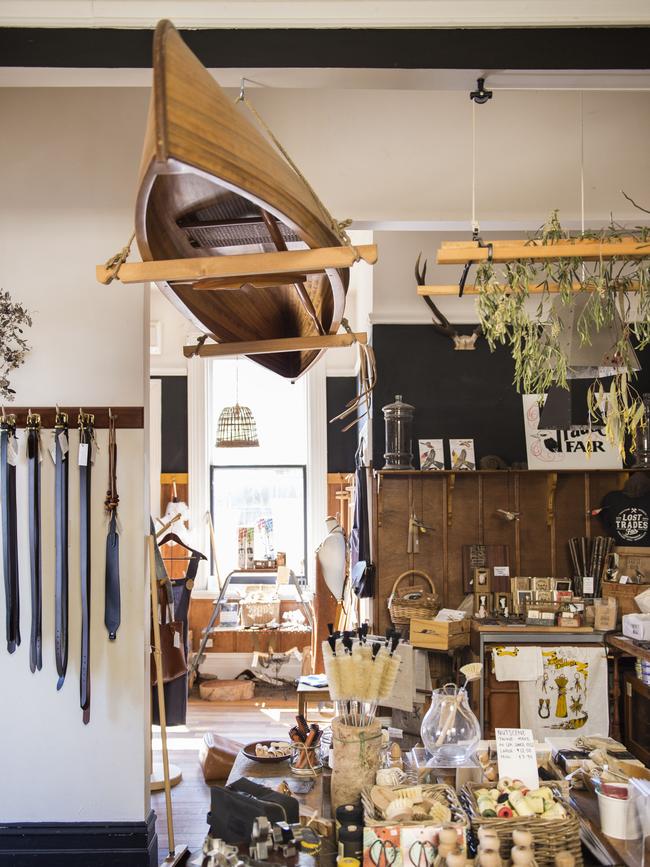
More than 120,000 visitors have attended fairs, not including the “millions” logging in via social media, magazines, radio, print and TV, around Australia and overseas.
About 200 artisans — from coopers to blacksmiths, leatherworkers to toolmakers — have demonstrated their trades, including visiting artisans from the UK and the USA who travel to be part of the event each year.
“We have provided letters of recommendation to a number of artisans for them to successfully be awarded fellowships, such as Churchill Fellowships, to travel overseas to further their skills,” Lisa says. “We have received handwritten letters and emails from artisans thanking us for the event and letting us know what it means.
“For many it has changed them, they have formed strong friendships, they have found a support network and new makers with which to collaborate.”
And to crown their achievements, in June Glen and Lisa will travel to the US to be keynote speakers at an international conference in Boston for the Association of Living History Farms and Museums, where they will present the journey of the Lost Trades Fair.
They’re in the process of taking out an international trademark (they long ago got an Australian one), with requests for Lost Trades fairs coming in from the US and UK on the back of the conference.
“It is pretty exciting to receive international recognition for an event started in a small country town in rural Victoria.
“It is hard to believe and I do sometimes have to pinch myself.”
The achievement is all the more significant given Glen is a former policeman and Lisa worked in marketing and PR for corporates such as L’Oreal and SPC. In 2012 they farewelled Melbourne to make their mark on Kyneton.
Glen continues to make his handcrafted chairs, sold in their Piper Street shop, which is now called Lost Trades: The Artisan Store. The shop also sells goods from their array of makers.
While Lisa started out almost single-handedly running the fair, it has become so big she has a year-round part-time staff of four, including a designer, artisan liaison manager and an interstate events manager. She continues to focus on media and PR, taking a wage after everyone else is paid.
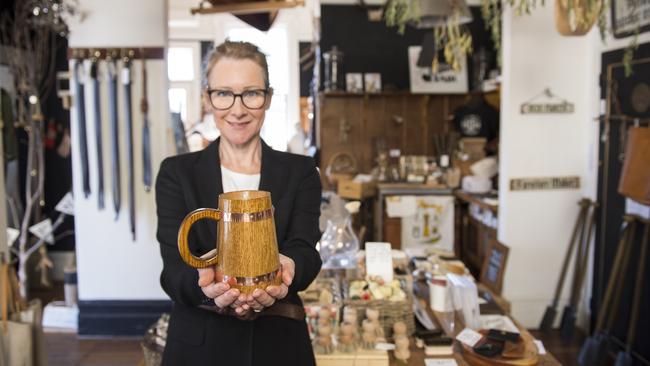
“We have created a monster, but it’s a beautiful monster. I’ve built the perfect job for myself. I get to be around people who are creative and passionate.
“After six years I have learnt to cut the apron strings a bit and let people do the job they’re paid to do.”
The 51-year-old says she was always crafty, thanks to her nan, being able to sew, knit, sequin and crochet from a young age.
But since starting Lost Trades, Lisa has taken part in classes as varied as spoon carving and leather work, to ceramics and mould making. The Rundells now act as agents for many artisans, publicising workshops and classes around Australia.
Lisa says she never fails to be impressed by the work of the creators.
This year for the first time they will feature indigenous basket weavers from remote northeast Arnhem Land.
One boy who will appear at the fair this year started out as an 11-year-old visitor, but at 16 turned his hand to blacksmithing, inspired by the fair.
Lisa’s ultimate dream would be to gather all the artisans on a plane and take their work around the world to show “Australian manufacturing and craftsmanship at its best”.
“It’s a revolution of artisans – those who want to pursue a life that is meaningful, make beautiful things that are not throwaway and will last generations, made with an honesty that is real and tangible.
“Hopefully it has changed people’s perspectives on what craftsmanship really is and just how clever we can be with our hands.
“We set out to create an artisan-led event that would inspire people and I hope that we do. I think the Lost Trades Fair in many ways has achieved more than we ever expected.”

